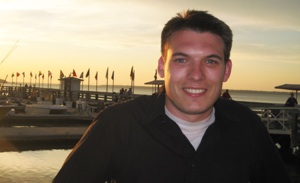Communications and Signal Processing Seminar
Bayesian Optimization and other Bad Ideas for Hyperparameter Optimization
Add to Google Calendar

Performance of machine learning systems depends critically on tuning parameters that are difficult to set by standard optimization techniques. Such "hyperparamers"—including model architecture, regularization, and learning rates—are often tuned in an outerloop by black-box search methods evaluating performance on a holdout set. We formulate such hyperparameter tuning as a pure-exploration problem of deciding how many resources should be allocated to particular hyperparameter configurations. I will introduce our Hyperband algorithm for this framework and a theoretical analysis that demonstrates its ability to adapt to uncertain convergence rates and the dependency of hyperparameters on the validation loss. I will close with several experimental validations of Hyperband, including experiments on training deep networks where Hyperband outperforms state-of-the-art Bayesian optimization methods by an order of magnitude.
Kevin is a post doc in the AMP lab at UC Berkeley working with Ben Recht. He is interested in the theory and practice of algorithms that sequentially collect data using an adaptive strategy. This includes active learning, multi-armed bandit problems, stochastic optimization, and sequential testing in statistics. His work ranges from theory, experimental work, to open-source machine learning systems. Kevin received his PhD from the ECE department at the University of Wisconsin – Madison in March 2015 under the advisement of Robert Nowak.
 MENU
MENU 
